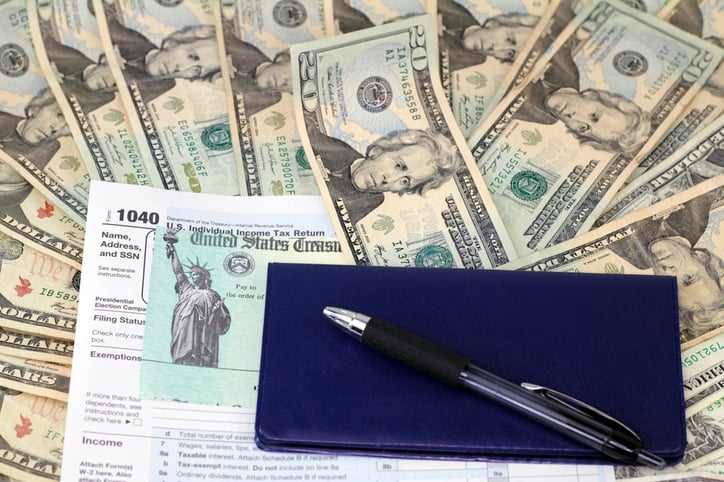
When you owe back taxes, the IRS may attach a lien to any property or assets that you own. This lien makes it difficult if not impossible to manage these possessions until your debt is satisfied.
However, you may be able to obtain a Certificate of Discharge, or COD, from the IRS under certain circumstances. These criteria may be sufficient for the IRS to release the lien and allow you more access to your assets or property.
Paying Your Debt in Full
The most practical approach to having the IRS lien released involves paying what you owe in full. When you bring your tax debt to a zero balance, you satisfy your obligation, leaving the IRS no reason to attach itself to your property.However, many people do not have the monetary means to pay off a tax debt in entirety. If you are one of those individuals who cannot pay what you owe immediately, you must consider other methods to obtain a COD from the IRS.
Sell Your Property
When the IRS attaches itself to your property or assets, it typically will not allow you to sell them unless the transaction benefits the government. The IRS may permit you to sell your property if the amount for which you sell it is equal to or greater than the amount you owe in back taxes.If so, the IRS will seize the money you receive from the sale and apply it to your account. If any money is left over, it will be refunded to you along with the COD. This discharge of debt also means that the buyer is able to receive the property without the lien being attached to it.
Refinancing
Likewise, the IRS may allow you to refinance your property or assets if this action benefits paying of your debt faster. For example, if you can refinance your home and make lower payments toward the mortgage, you should have more money to pay toward your IRS debt.Refinancing is an option if you have no money left over in your budget to pay on an installment agreement with the IRS. The IRS may allow you to refinance the property so that you can apply more money toward the installment agreement or the entire debt in full.
Qualifying for a COD
These circumstances alone may not be enough to secure a COD from the government. The IRS also requires that you meet certain criteria to ensure that your account has the best chances of being paid off entirely.To qualify for a Certificate of Discharge from the IRS, you must:
- Be a qualifying taxpayer
- Be compliant in filing taxes for the last three years
- Have made all prior installment agreement payments on time in the last 60 days
- Be current on estimated tax payments and federal tax deposits
Further, you may secure a COD if you convert your regular installment agreement to a Direct Debit agreement and owe $25,000 or less in back taxes.
A tax lien on your property and assets can affect your ability to secure credit backed by these possessions as well lower your credit score. You cannot get rid of a tax lien by any other method including even filing for bankruptcy.
Owing back taxes can lead to the IRS putting a lien on your property. Rather than deal with limited access and management of these assets, you may consider one of these methods for gaining a Certificate of Discharge of the lien from the IRS. These strategies also help resolve your tax debt that you owe to the government.




